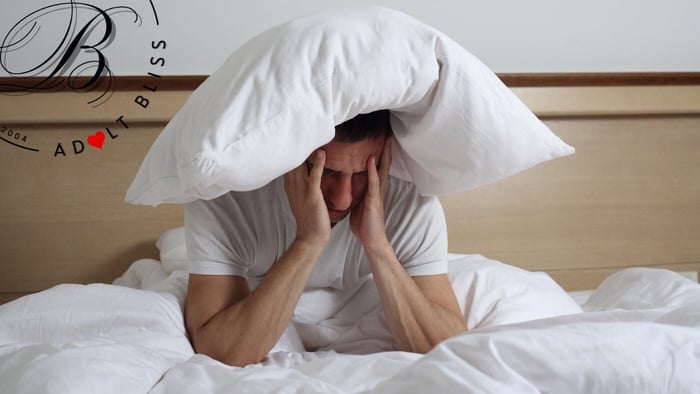
Menopause: Does It Pause Your Sex Life?
Jump To Section
Menopause is a gradual process where a woman’s body stops producing the hormones that cause menstruation. This process may take up to 14 years and occurs when at least 12 months pass since the last menstrual period. Like the puberty stage, perimenopause (before menopause), menopause and postmenopause (the time after menopause) result in a wide array of changes which affect all spheres of a person’s life.
When it comes to sex, libido, and the ability to attain climax, the changes experienced during this period can lead to distress, grief, and downright confusion. Let’s talk about how this change of life can affect your sex life.
Physical changes
During perimenopause (the time before menopause starts in earnest) fewer sex hormones are produced. This leads to unpredictable levels of estrogen, progesterone steadily declining while testosterone is produced unhampered. Testosterone levels decrease naturally as a person ages, and any changes in this hormone are unrelated to menopause.
Hormonal Impacts
As you can imagine, these changes to hormone production can result in significant physical changes. Broadly, these changes can lead to brain fog, headaches, incontinence and weight changes. When it comes to sex, these hormone changes have a direct effect on arousal. Sexual arousal relies on several physical functions which are impacted by hormone changes. Increased blood flow to the genitals, enlarged or erect clitoris and vaginal canal wetness are just a few typical features of arousal. Lower estrogen levels are correlated with reduced blood flow to the genitals and lack of natural lubrication. With the reduction of estrogen, the vaginal tissue becomes thinner and less elastic which can lead to damage to the area which it was previously able to withstand.
 Psychological/Emotional changes
Psychological/Emotional changes
As well as the physical changes that occur during menopause, there are psychological and emotional changes that occur that can impact on a person’s sex life.
Mental Health
Compared with those in the perimenopause stage, menopause is associated with poor memory and concentration, irritability, depression and anxiety. Sleep problems such as difficulty falling and staying asleep are also associated with changes in hormones at this life stage. It is important to remember that this can be a very stressful period in a person’s life, with a myriad of changes taking place alongside menopause, including life circumstances, family structure and work commitments. Pulling apart what is due to menopause and what is due to these life changes can be very difficult, and it is important to have a health professional who is not only experienced with women’s health, but has an open and curious attitude to symptoms.
Jo Agape Original Lubricant

$34.95
JO Agape is our carefully pH balanced, water-based lubricant that mimics the body’s natural moisture for a comforting glide during partnered, solo, or toy play....… read more
Get One NowSexual Health
Changes in sexual desire are common during menopause. This can be seen as an increase in libido, or a decrease. These changes can be traced (in part) back to physical changes one experiences during menopause. For example, damage to the vaginal area due it becoming drier and less elastic, can result in pain and discomfort which affects sexual desire and interest. While other sex hormones are being produced less, testosterone is still present at this time, and there is some evidence that it plays a key role in sexual desire, and this being the explanation for why libido may increase during menopause.
Societal perception/expectations
Finally, societal perception and expectation of the sexuality of people experiencing menopause can have a huge effect on a person’s sex life. Older women are not encouraged to be sexual beings, despite whatever the experience has been during the rest of their life. Mainstream attitudes are that older and elderly people cannot be sexy or desirable, and that viewing them as sexual is “gross” or a specific, niche kink. This can influence people feeling able to have an active sex life and their general attitudes towards sex, despite their age. What this highlights is that there are deeper, wider social attitudes about older people and aging which require addressing. These attitudes affect more than just sex, but also how we conceptualise people at all life stages. It does not matter what age, life stage or physical changes a person is experiencing; we should encourage and support their sexual expression regardless.
It is Not All Doom and Gloom!
Despite menopause being a significant stage in a person’s life, there are many options to support the changes that are experienced. Symptoms such as the physical ones I mentioned earlier can be managed with a combination of medical interventions and adjustments to lifestyle. Connecting with a mental health practitioner who can provide specialised support during this time is also encouraged, particularly if mental health issues have been experienced before this period of a person’s life. Menopause is a significant life event, and the changes that take place may exacerbate current or historical mental health issues.
 Support Is Out There
Support Is Out There
For partnered people, engaging with a sex therapist can help work through the effects of menopause on relationships, including those involving libido and changes in sexual desire. Finally, when it comes to the practicalities of maintaining an enjoyable sex life, there are a wide range of products to assist in this area. Lubricants (which are vital for everyone, but even more so for those with sensitive vaginal tissues) and toys which do not focus on penetration and are gentler on the genitals are just two options to explore.
In Summary
As I have talked about in previous pieces regarding life changes and your sex life, menopause and the changes it brings creates an opportunity to evaluate a person’s sex life and see what can be modified to ensure their needs are being met, albeit in a different or creative way! Using different toys, focussing on intimacy outside of penetrative sex and changing things up are conducive to the start of a new and exciting life chapter.
FAQs
What is menopause, and how long does it last?
Menopause is the natural life stage when menstruation stops due to hormonal changes, particularly a drop in estrogen and progesterone. It typically lasts several years, with perimenopause starting beforehand and postmenopause continuing after. The full transition can take up to 14 years.
How does menopause affect libido?
Libido can decrease or increase during menopause, depending on hormone levels, emotional well-being, relationship dynamics, and physical symptoms like dryness or pain during sex.
Why is sex more painful during menopause?
Lower estrogen levels cause thinning of vaginal tissue and a loss of elasticity, which can make penetration uncomfortable or painful. Decreased lubrication is also common, making lube and gentle stimulation more important than ever.
Can I still enjoy sex after menopause?
Yes! Many people report deeply satisfying sex lives after menopause. It may just require some adaptations, such as using lubricant, trying different types of stimulation, and openly communicating with your partner(s).
Are there products that can help with menopausal sex challenges?
Absolutely. Water- or silicone-based lubricants, vaginal moisturisers, and sex toys designed for external use or gentle pressure can all support comfort and pleasure.
Does testosterone play a role in menopause libido changes?
Yes. Although testosterone levels also decline with age, they remain present and may play a role in maintaining or increasing sexual desire for some people.
What emotional symptoms affect sexuality during menopause?
Mood swings, anxiety, irritability, low self-esteem, and sleep disturbances can all impact libido and your overall interest in intimacy.
Can mental health support improve my sex life during menopause?
Yes. Therapy can help manage stress, improve communication with partners, and address any mental health concerns that may be impacting intimacy.
How does society view older women and sexuality?
Mainstream media and cultural narratives often de-sexualize older women, which can impact how they view themselves. Challenging this stigma is crucial in promoting healthy, positive sexual expression at any age.
Should I talk to a doctor about sexual issues during menopause?
Absolutely. Your GP, gynaecologist, or a sex therapist can offer guidance, rule out medical issues, and suggest tools or treatments to support your sexual well-being.








